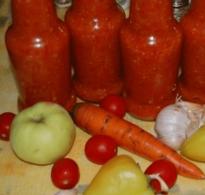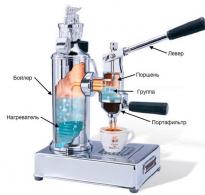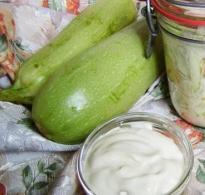Coffee processed by animals. Coffee from feces is the most expensive in the world
Coffee is the most traded product after oil. There are coffee lovers in every home. Russia is among the top ten biggest coffee lovers. Almost everyone loves coffee, but not everyone knows that the most expensive and most difficult elite and prestigious is coffee Kopi Luwak (coffee from excrement). This is a unique grade of coffee No. 1.
Gourmets catch in it an unusually soft taste of caramel with the most delicate aroma of dark chocolate and vanilla with a persistent pleasant aftertaste. One cup of coffee can cost up to $90 in Europe. Perhaps this adds a special charm to the excellent taste.

The technology of its preparation will shock anyone. Exclusive coffee for a narrow circle is obtained in the most extreme way - this coffee is not for the faint of heart. The method of making aromatic coffee is different from the traditional one. This unique, most expensive sort of coffee is chosen from animal droppings (excrement, in simple terms - ordinary poop).

Soft to the touch and fluffy wild animals, distant relatives of the mongoose Rikki-tikki-tavi, resembling a cat with a big nose - the Asian palm civet (civet, luwak, musang or Chinese badger) are big fans of coffee berries. Moving from one tree to another, animals absorb the most ripe and largest coffee berries in large quantities.

Ripe coffee beans are red in color and resemble the fruit of a bay tree. During the day, one voracious animal can swallow up to 1 kg of coffee beans, from which only 50 g of undigested coffee beans can then be picked out.

Coffee beans treated with enzymes of gastric juice and civet: - dried, cleaned and peeled, washed thoroughly, dried again, then gently roasted at a certain temperature. The exact roasting recipe is kept secret.

Outlandish grains obtained in such an unusual way can only be obtained for 6 months of the year, and the rest of the time the animals do not produce the enzyme that gives coffee a unique flavor. The grains obtained from males have a greater and more pleasant fragrance. A high standard is set for defects in the appearance of coffee beans, the beans go through up to 15 degrees of sorting.

The most expensive Kopi Luwak coffee with a unique aroma is produced in Indonesia in a special microclimate on the island of Java and earn a lot of money on it.

Some researchers have tried to get the same coffee in Ethiopia, simulating a natural process, as coffee trees grow there and viverri are found. According to the opinion of tasters, Ethiopian coffee is inferior in taste to the original.

The most expensive coffee in Vietnam is called Chon, this is the most expensive and unusual coffee.

The cooking technology is as complex as in Indonesia, coffee beans are used, processed by the stomach of an amazing animal. But the locals in Vietnam make coffee not in a copper cezve or jazve, but in a drip filter right above the cup.

The taste, aroma and density of coffee is significantly different from the usual for a European. Vietnamese coffee is very thick, has a very rich aroma and a transparent dark color.
On the island of Bali organized artificial small farms for the production of delicacies for extreme sports. Luwaks are kept in captivity, fed with coffee berries and offer tourists to get acquainted in detail with the production process of the most expensive coffee in the world, and if they wish, even personally participate.

All work is not yet mechanized and is performed manually. Lovers of curiosities with a lot of cabbage love show-offs. Most of all lovers of special fragrant coffee with delicate caramel flavor luwak in Japan.
Huge profits from the sale of "luwak coffee" advised hardworking, enterprising Thais to organize the production of coffee using the stomach of elephants. Therefore, a zoo farm was created in the north of Thailand. The stomachs of a herd of 20 elephants are processing coffee beans for elite coffee Black Ivory Coffee (Black Tusk or Black Ivory).

The stomach of an elephant is many times larger than the stomach of a small predatory animal luwak (aka mussang). Coffee beans are in the stomach of an elephant for more than a day, next to a special diet of vegetables, bananas and sugar cane. During this time, coffee beans are saturated with fruit and vegetable odors, processed by gastric juice, change their chemical composition and are brought out in a natural way, i.e. in the form of poop)

Since elephants are vegetarians, extreme vegans should give a clear preference to Black Ivory over civet coffee. To get 1 kg of coffee, you need to feed the animal 33 kg of selected Thai Arabika beans, hand-picked on high-mountain coffee plantations.

Veterinarians periodically check the level of caffeine in an elephant's blood. Therefore, the cost of coffee for the elite rises to $ 1,100 per kg. Exclusive coffee is offered only in expensive Anantare hotels in the Maldives and in the Golden Triangle Nature Reserve between Burma, Laos and Thailand. The cost of one cup of coffee is only $50. The new variety of exclusive, original coffee is sold in very limited quantities - only 60kg was offered for sale last year. It took $300,000 to develop a new coffee variety.

Coffee lovers, having tried a new sort of coffee, Black Ivari note an unusual taste, which is difficult to find epithets - it is a kind of pleasant taste and incomparable aroma.

In Russia, the first coffee house was opened in 1740 by order of Empress Anna Ioannovna. She was a big coffee drinker. So Russian craftsmen should have developed and put on stream the production of coffee processed by cows. Its productivity with a constant appetite can compete with elephants, and they would call the new coffee - Copi Burenka (or in ours: Coffee Burenka). And there, you see, the name of the pioneer would have been added to history, and even today the export of a new sort of elite coffee would be added to the export of oil and gas.
If you, gritting your heart, gave your entire monthly salary as a teacher in Moscow for a coffee package, then hold your breath, prepare yourself a cup, carefully preserving the foam during brewing, which from the first sip will fully reveal all the taste qualities, the divine aroma and make you want to drink all the way to the end. Such delicacies greatly arouse curiosity, but sometimes reduce appetite, causing certain associations. For reference: Coffee from the litter comes in different varieties. By far the most expensive is the original luwak litter coffee, followed by elephant litter coffee. The third place is proudly occupied by monkey coffee!

And now we are trying to guess who is in fourth place? Entrepreneurial farmers from the city of Minneapolis (Minnesota) have established the production of coffee from cat litter. And according to its producers, those who have not tried this coffee have not tried coffee at all!
Starting your morning with a cup of fragrant and invigorating drink, have you ever wondered how the most expensive coffee grows and is produced? It is enough to go to any supermarket to see a huge assortment of this product. But in a simple store it is problematic to purchase truly elite varieties. To do this, you will need to visit specialized departments or contact the supplier company directly.
If you want to try the most expensive coffee and decide to start looking for this drink, you will need to know the top ten elite varieties and their features.
In the first place is a special variety called "Kopi Luwak". The supplier of this coffee is Indonesia. Huge plantations are located in Java and Sumatra. The main difference of this variety from all the others is a rather exotic method of its production.
The most expensive coffee in the world is the excrement of a small animal, the civet. Colonies of these animals live near plantations and feed on ripe berries. In the stomach of animals, all parts of the berry are processed, except for the hard coffee bean, which comes out naturally. The excrement is collected, washed thoroughly with water, dried and lightly fried.
The honorable third place is occupied by a drink made from St. Elena Coffee beans. Its cost is 79 dollars per pound. Coffee plantations are located on St. Helena. This variety gained great popularity due to historical events that are associated with the exile of Napoleon Bonaparte.
The fourth place in the list of "The most expensive coffee" is rightfully occupied by the variety "El Injerto". It is native to the Huehuetenango region of Guatemala. This drink is one of the most loved drinks in the world. In fifth place is a brand called "Fazenda Santa Ines", whose birthplace is a place called Minas Gerais in Brazil. This variety won first place in the competition "Cup of Quality", held in Brazil in 2006. Either of these two varieties can be purchased for as little as $50 a pound.
In sixth place is the most beloved coffee in Japan called "Blue Mountain". It is grown in the Blue Mountains of Jamaica. The coffee beans harvested from these plantations have a low bitterness content and a particularly mild flavor. It is for these qualities that the Japanese love him so much. Up to 80 percent of the total crop of this variety is exported to the Rising Sun Islands. One pound of Blue Mountain costs $49.
The seventh place in the rating list was given to a drink under the brand name "Los Plains Coffee". The grains, which received such a poetic name, grow on the sunny plantations of El Salvador. This variety took an honorable second place in the competition "Cup of Quality", held in Brazil in 2006. Out of a hundred possible points, this coffee received 93.52 points according to the jury. One pound of beans of this variety costs $40.
Next on the list of "Most Expensive Coffee" is a variety called "Hawaiian Kona Coffee". It is native to the Big Island in Hawaii. Famous plantations are located in the northern and southern region on the slopes of the mountains Mauna Loa and Hualalai. This variety is considered the most sought after in the world and costs $ 34 per pound.
Ninth place is rightfully occupied by a variety called "Starbucks Rwanda Blue Bourbon". This one was opened by Starbucks in 2004 while visiting a place called Rwanda. From now on, farmers living in the area are only engaged in the cultivation of this variety of coffee beans. Starbucks Rwanda Blue Bourbon is $24 per pound.
The last place in the top ten, but not less prestigious because of this, is occupied by a variety called "Coffee Yauco Selecto AA". Its homeland is plantations located in the southwestern region of the Puerto Rico mountain range, in a place called Yauco. A distinctive feature of this variety is a moderate aroma and excellent rich taste. The cost of coffee beans of this brand will cost you $ 24 per pound.
According to statistics, more than two and a half billion cups of coffee are drunk every day in the world. An invigorating and delicious drink won the hearts of millions of fans. And true connoisseurs are ready to pay a lot of money for the privilege of drinking a cup of truly elite coffee.
Today in our selection are most expensive coffees able to satisfy the taste of any fastidious gourmet.
10. Yauco Selecto AA ($11 a pound - about 450 grams)
 One of the rarest and most expensive Arabica varieties is grown in the mountains of Puerto Rico at an altitude of at least 100 meters above sea level. The aroma of coffee of this variety is distinguished by nutty and chocolate notes.
One of the rarest and most expensive Arabica varieties is grown in the mountains of Puerto Rico at an altitude of at least 100 meters above sea level. The aroma of coffee of this variety is distinguished by nutty and chocolate notes.
9. Starbucks Rwanda Blue Bourbon ($24 a pound)
 This variety has been grown in Rwanda since 2004 for the famous Starbucks coffee company. The unique taste of coffee is distinguished by fine acidity, as well as the aroma of spices.
This variety has been grown in Rwanda since 2004 for the famous Starbucks coffee company. The unique taste of coffee is distinguished by fine acidity, as well as the aroma of spices.
8. Kona Coffee ($34 per pound)
 This variety of Arabica grows on the slopes of the Hawaiian volcanoes Gualalai and Mauna Loa. Mineral-rich volcanic soil and an ideal climate create all the conditions for the maturation of aromatic Kona coffee beans.
This variety of Arabica grows on the slopes of the Hawaiian volcanoes Gualalai and Mauna Loa. Mineral-rich volcanic soil and an ideal climate create all the conditions for the maturation of aromatic Kona coffee beans.
7. Los Planes ($40 per pound)
 This coffee is grown on the plains of Los Plains in El Salvador. Connoisseurs note its sweetish-floral notes with a touch of cocoa. In 2006, at the prestigious Quality Cup, experts assigned this coffee 93.52 points out of a hundred possible.
This coffee is grown on the plains of Los Plains in El Salvador. Connoisseurs note its sweetish-floral notes with a touch of cocoa. In 2006, at the prestigious Quality Cup, experts assigned this coffee 93.52 points out of a hundred possible.
6. Blue Mountain ($49 per pound)
 This variety is grown in Jamaica. Blue Mountain is the favorite drink of the English Queen Elizabeth and the legendary James Bond. By the way, the aroma and mild taste of this expensive coffee appealed to the Japanese, who buy up about 80% of Blue Mountain beans.
This variety is grown in Jamaica. Blue Mountain is the favorite drink of the English Queen Elizabeth and the legendary James Bond. By the way, the aroma and mild taste of this expensive coffee appealed to the Japanese, who buy up about 80% of Blue Mountain beans.
5. Fazenda Santa Ines ($50 per pound)
 The grains of this expensive variety are harvested by hand on Brazilian plantations in Minas Gerais. The best Brazilian coffee has a rich aroma with citrus and chocolate undertones. It is believed that this coffee goes great with cream.
The grains of this expensive variety are harvested by hand on Brazilian plantations in Minas Gerais. The best Brazilian coffee has a rich aroma with citrus and chocolate undertones. It is believed that this coffee goes great with cream.
4. El Injerto ($50 per pound)
 This type of coffee is grown in Guatemala in the town of Coban. The humid rainy climate of the places where it grows contributes to the special taste of coffee. This variety has won the Quality Cup three times - in 2002, 2006 and 2007.
This type of coffee is grown in Guatemala in the town of Coban. The humid rainy climate of the places where it grows contributes to the special taste of coffee. This variety has won the Quality Cup three times - in 2002, 2006 and 2007.
3. Island of St. Helena Coffee ($79 a pound)
 Saint Helena is famous for being the place of exile of Napoleon Bonaparte, who, by the way, really appreciated the local coffee. A feature of this variety is that only natural fertilizers are used in its cultivation.
Saint Helena is famous for being the place of exile of Napoleon Bonaparte, who, by the way, really appreciated the local coffee. A feature of this variety is that only natural fertilizers are used in its cultivation.
2. Hacienda La Esmeralda ($104 per pound)
 One of the most expensive coffee varieties on the planet is grown in Panama in the town of Gesha. However, in order to increase interest in the product, far-sighted planters named local coffee trees with the alluring name "Geisha". Each grain of the Hacienda La Esmeralda variety is checked for defects and weighed.
One of the most expensive coffee varieties on the planet is grown in Panama in the town of Gesha. However, in order to increase interest in the product, far-sighted planters named local coffee trees with the alluring name "Geisha". Each grain of the Hacienda La Esmeralda variety is checked for defects and weighed.
1. Kopi Luwak ($160 per pound)
 The most expensive coffee comes from the islands of Java, Sumatra and Sulawesi. Coffee got its name from small animals - civet or Luwak, as the locals call them. Civet eat ripe coffee beans by passing them through their gastrointestinal tract. Coffee beans come out undigested, cleaned, dried and roasted. Enzymes contained in the stomach of the civet give the drink a special taste and aroma. No more than 500 kg of the Kopi Luwak variety enters the market every year.
The most expensive coffee comes from the islands of Java, Sumatra and Sulawesi. Coffee got its name from small animals - civet or Luwak, as the locals call them. Civet eat ripe coffee beans by passing them through their gastrointestinal tract. Coffee beans come out undigested, cleaned, dried and roasted. Enzymes contained in the stomach of the civet give the drink a special taste and aroma. No more than 500 kg of the Kopi Luwak variety enters the market every year.
Coffee is the favorite drink of the inhabitants of the Earth. It is with him that the morning of many Russians begins. Someone likes instant, someone - brewed coffee. Someone prefers to grind the grains himself and cook in a Turk. What can I say, it's a matter of taste. And true connoisseurs of this drink prefer to drink the most expensive coffee in the world, paying tribute to fashion and the established image of a coffee lover. What varieties are most quoted by those who are interested in this issue?
Top five
In fact, there are only two main coffee varieties - Arabica and Robusta. The former is considered to have a more subtle taste and contains less caffeine compared to robusta. The second, cheaper, with bitterness and sourness, contains more caffeine. The most common in the world is Arabica. How much does coffee cost? How is its price formed? Here are just some of the data, a kind of hit parade of expensive coffee.
Fifth place
Fifth place on this list is occupied by "Blue Mountain" - coffee, the price of which reaches $ 90 per kilogram. It is produced in Jamaica and is famous for its mild flavor without hints of bitterness. As a basis, it is used to make the famous Tia Maria liqueur.
Fourth place
The fourth is Fazenda Santa Ines. It goes up to $100 per kilo. It is produced in Brazil (Minas Gerais) by hand. It differs from others with a sweet aftertaste of berries and caramel.

Third place
The third is Saint Helena coffee (there is such an island, famous for the fact that Napoleon was in exile there). It is made from the fruits of the same Arabica, which, however, grow only in this place. Coffee is famous for its subtle fruity aftertaste.
Second place
The second place in our hit parade is "Esmeralda", the most expensive variety of coffee obtained with traditional, we emphasize, processing. The price per kilogram reaches 200 dollars! It is produced in the mountains of Panama, its western part. It has an original taste, which is believed to be the result of careful harvesting and a cool climate.
Is the most expensive coffee made from excrement?
And finally, the most "valuable" - "Kopi Luwak". You can translate the first word as, in fact, coffee. The second word is the name of the animal, thanks to which the most expensive coffee in the world appears. The fact is that it is “produced” with the help of the African palm civet is very unusual. Animals (in appearance resembling squirrels) eat the berries of the coffee tree. Further, everything passes through the intestines of the civet, while the coffee beans remain undigested.

The most expensive coffee in the world comes from Indonesia. Its plantations are located on the islands of Java and Sumatra. The farmers of these plantations harvest the ripe fruits in the traditional manner. After that, they are fed to civets, which are kept in special enclosures. Animals eat them with pleasure. Then, when the coffee beans themselves come out with the excrement, they are cleaned, washed, and dried. Later - lightly fried.

The most expensive coffee in the world, obtained as a result of the vital activity of Indonesian civets, is famous for its very delicate aroma. Natural enzymes give it a special softness of taste. The retail price for a cup of such a drink can reach up to $50. And the cost of a kilogram is up to a thousand.

Limited supply
Every year, only about five hundred kilograms of Kopi Luwak beans enter the coffee markets. That is why he is so appreciated. It's all about rarity and elitism, and, of course, taste. With what epithets sellers and producers just do not exalt the dignity of this coffee: caramel, with a taste of cherries, the drink of the gods, with the aroma of vanilla and chocolate. In any case, this is a premium class drink, which, of course, is in good demand among the most zealous coffee drinkers, like everything elite and rare.
Historical perspective
There is even a legend about the origin of this "drink of the gods". It is said that at the time of colonization, planters forbade workers from taking coffee beans from plantations due to its high cost. Then people began to pick up coffee specially processed by civet from the ground (it was already impossible to sell it). The grains were washed, dried, ground. Brewed such coffee and drank. Then one of the white planters tried this drink for the poor. Struck by the delicate taste, he began to promote the product to the market. Since then, Kopi Luwak has been delighting drink lovers with its unique taste.

By the way, in Vietnam, for example, there is an analogue of the famous Luwak - coffee called Cheon. It is cheaper and is made in a similar way. It is said that this type of coffee has an even more pronounced flavor of beans processed with enzymes from a local variety of the animal.
african civet
Thus, the main producer of an expensive product is the civet itself. The animal belongs to the same family as the mongoose, outwardly even resembles it. Although in habits it is more like a cat. The civet spends most of its life in trees. Like a cat, she knows how to put her claws into the pads. Locals often tame civets, and they get along well with people: they drink milk, live in houses, respond to nicknames, regularly catch rodents, sleep at the feet of the owner, in general, turn into pets. This animal is also used as a source of musk used in the perfume industry. And, of course, for the production of elite coffee.

They say the best comes from the wild civets that make their way to the plantations at night. And in the morning, farmers, as a thank you from the animals, collect excrement under the coffee bushes as raw materials for the production of the “drink of the gods”. Each civet can eat up to one kilogram of coffee berries per day. "Output" it can only give up to fifty grams of processed grains. I must say that civets eat animal food, and not just berries. In the diet of domesticated civets, for example, chicken meat is present. These are nocturnal animals. And they generally don't breed in captivity. Among other things, the enzyme, which coffee lovers like so much, animals can only produce for six months. The rest of the time they are kept "for nothing" or even released into the wild so as not to feed in vain. And then they catch it again.
A new word in the production of coffee
At the moment, according to some reports, civet has given way to elephants, from whose excrement, it turns out, elite coffee is also produced in Thailand. The technology is similar, but this type of coffee is called "Black Tusk"! Bon appetit everyone!
Everyone loves coffee: men and women, Europeans and Asians, young and old, the elite and the poor. However, it is easy to assume that rich and very rich people prefer a drink of a completely different level than the middle class and the poor. And of course, this is bean coffee, because only it retains all the taste and aroma of the best varieties from all over the world. Let's give free rein to curiosity and find out which beans are most valued in the coffee market and why.
Why is grain better?
- A high-quality drink that has retained all the shades of taste and aroma can only be obtained from freshly ground coffee beans. For this reason . When using a good coffee machine, the grains are poured into the unit, they are immediately crushed and brewed in it.
- The quality of coffee beans is easier to assess visually. Size, color, smell. According to these characteristics, connoisseurs can easily identify compliance with varietal characteristics. What served as the raw material for the preparation of coffee powder is almost impossible to determine.
- Coffee beans are stored better, preserving the exquisite aroma longer. For this, it is not necessary to use airtight dishes. It is enough that the place is dry and free of foreign odors.
For these and some other reasons, premium varieties are sold only in the form of beans and are much more expensive than ground coffee.
An instant drink cannot be classified as a luxury by default.
Elite varieties
The taste of coffee depends on many conditions: on the climate in which it is grown, on the characteristics of the soil and water. Therefore, as a rule, they are characterized by a specific geographic "referencing". In addition, the properties of luxury products are determined by the processing features, screening out substandard grains. The batches of such goods are limited, which also affects the price. What varieties are the most expensive, and what are their features?
Black Ivory
Coffee with this name (translated as Black Ivory) is considered the most expensive in the world. It is produced on a single farm located in Thailand.
For the year, only 3-4 centners of coffee beans go on sale.
The method of making this unique, very rare variety is quite exotic. The fruits of the coffee tree (Thai Arabica variety) are fed to elephants. Then the undigested grains that have passed through the giant's digestive tract are thoroughly washed, dried and roasted. The product yield is low. By feeding an elephant about 30 kilograms of coffee berries, you can get only one kilogram of elite beans. The cost of this kilogram ranges from one to one and a half thousand US dollars.
The mild taste of the drink from Black Ivory is considered a reference. It completely lacks characteristic bitterness, but at the same time, a surprisingly bright aroma is revealed with hints of spices and exotic fruits, notes of caramel and spring flowers.
Kopi Luwak
The second most expensive variety is produced in a similar way. Only coffee beans are fermented in the bowels of the digestive system of small animals - civet (the local name is luwak, it gave the name to this special coffee).
The region of origin is the islands of Indonesia, the Philippines, the islands of Java, Sulawesi and Sumatra. But similar farms have already appeared in India and China. On these farms, animals are kept in captivity, and the product produced there is somewhat lower in price.
The most highly valued is Kopi Luwak, obtained from wild civets. The cost is about 600 US dollars per 0.5 kilogram of washed, dried and roasted grain. The characteristic taste is described as chocolatey with a pronounced nutty note.
No more than 5 centners of coffee of this variety enter the market annually.

Hacienda La Esmeralda
This valuable variety comes from Panama and is grown in the mountains of Baru. The spicy, rich taste is due to a combination of a number of factors: unusual volcanic soil, the ideal height of the plantation above sea level and a special kind of coffee trees (they are called Esmeralda). Exquisite taste is preserved due to low roasting. The fruits of coffee trees on the farm are harvested by hand, choosing only the best, ripe, without defects.
Such a strict selection of perfectly high-quality raw materials ensures the highest class of the product, which rises in price every year at coffee auctions. Its taste is also special: notes of spices, fresh fruits and chocolate are mixed in it.
To avoid fakes, you should buy luxury coffees only in specialized stores or from trusted, reliable suppliers.
Geisha
More recently, in 2003, this amazing variety became a real coffee discovery. Exquisite taste conquered gourmets all over the world. It is very soft, delicate and sophisticated. It has hints of citrus and berries wrapped in fresh floral notes.
The variety is grown in the mountainous regions of Panama and Costa Rica. Despite its youth, this coffee has repeatedly won various serious competitions.
Blue Mountain (JMB)
Connoisseurs recognize the taste of this variety as perfectly balanced: sweetness, bitterness and bitterness are harmoniously combined in it. The aroma has notes of ripe juicy nectarines, pepper and chocolate, and a nut is clearly audible in the aftertaste. Such perfection of taste qualities is explained by special climatic conditions: a combination of specific soil, winds from the sea and the height of the plantations.
This type of Arabica is grown in Jamaica, on the mountain slopes. The variety owes its name to the highest peak of the mountain range - Blue Mountain.
An interesting feature is the constant taste from harvest to harvest. Consistency is achieved through stable climatic conditions.
It is supplied to the market not in bags, but in original barrels, which are produced specifically for this purpose. The amount of coffee produced annually is limited - only about 15 tons go on sale. The authenticity of the product is protected by a certificate of conformity.
Yauco Selecto AA-Coffee
Among the elite varieties, this one seems almost affordable. At coffee auctions, the cost of 500 grams is about $25. It is grown in areas with high rainfall on clay soil: in the Cordillera, Puerto Rico. The taste is described as a combination of nuts, spices and chocolate.

Jacques Bird
Brazil also did not stand aside in this coffee competition. An exotic variety of Jacques Bird related to the famous Kopi Luwak and Black Ivory. Only an intermediate link in processing here is a local bird, similar to a guinea fowl, - Jacques. Birds peck at coffee berries but cannot digest the beans. Coffee that comes out of the digestive tract naturally is washed, dried and roasted.
In the special taste of this drink, notes of rye bread, molasses, fruits and nuts are guessed. Every year, the plantation produces no more than 1.5-2 tons of specific coffee beans.
Kona Coffee
The Hawaiian Islands also grow their own elite coffee. Arabica grows here on volcanic slopes in exceptionally favorable climatic conditions for this tree. This variety, widely known throughout the world, and quite expensive, has been grown on the island since the 1820s.
In the taste of the drink, wine notes are guessed, tinted with aromas of spices. Gourmets around the world recognize the uniqueness and superior quality of Hawaiian Arabica.
Bat
The last variety to which attention is paid in this article. It is grown high in the mountains, in the southwestern regions of Costa Rica. The manufacturer is the one of a kind farm Cofea Deversa. The uniqueness of coffee from this plantation lies in the fact that bats are engaged in the selection of beans! Small animals are not able to swallow the whole coffee berry, but they love their delicious pulp very much. To eat, they bite through the peel and suck out the juice. Due to the special sensitivity of olfactory and taste buds, bats choose only the best fruits.
Such “selected” mice berries are allowed to dry on a tree, then they are harvested, cleaned and dried. Such combined drying in combination with the special selectivity of small sweet teeth allows you to get a completely unique taste of the drink with hints of coconut milk, spices and fruits.
The aftertaste will please gourmets with nutty-chocolate notes. This coffee is not the most expensive in the world, but its taste is truly unique.
Of course, not all precious premium coffees are described in the article, because there are quite a few of them. True connoisseurs of the drink are ready to pay significant amounts for the grains of their beloved ones, and they can be understood. Unfortunately, for most people, fine and rare types of coffee remain an unattainable luxury.






